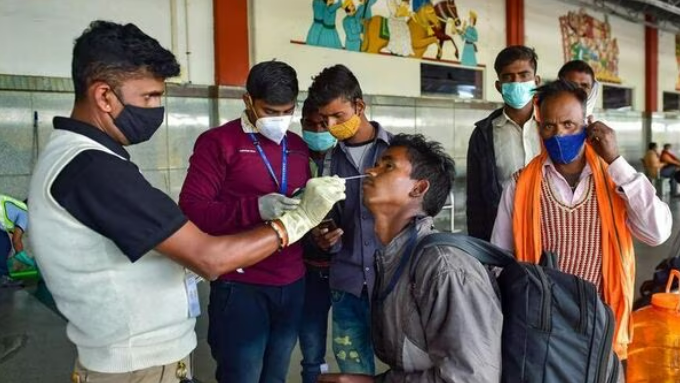Introduction:
A twist of fate, India finds itself grappling with a new adversary in the form of the JN.1 Covid variant. With 21 confirmed cases reported across the country, concerns are rising as health authorities work tirelessly to understand and contain this novel subvariant of the BA.2.86 lineage. As the nation witnesses a surge in Covid cases, it’s crucial to delve into the latest developments, guidelines, and the impact of the JN.1 variant on India’s ongoing battle against the pandemic.
The Emergence of JN.1:
The JN.1 (BA.2.86.1.1) variant made its debut in late 2023, descending from the BA.2.86 lineage of the coronavirus. This subvariant has garnered attention due to its distinct genetic makeup, carrying more than 30 mutations in the spike protein—a feature that raises concerns about its potential for immune evasion.
The Current Scenario:
As of the latest reports, India has logged 21 cases of the JN.1 variant, prompting heightened vigilance in states like Kerala, Maharashtra, Jharkhand, and Karnataka. With two Covid-19-related deaths reported in Karnataka, questions arise about the potential severity of the new subvariant. The World Health Organization (WHO) has classified JN.1 as a “variant of interest,” acknowledging its rapid spread while maintaining a “low” global public health risk classification.
State Responses and Guidelines:
Health authorities across India are gearing up to face the challenge posed by the JN.1 variant. Union Health Minister Mansukh Mandaviya convened a meeting stressing the ongoing threat of Covid and urging states to monitor emerging cases closely. Hospitals nationwide are on high alert, conducting tests and genome sequencing to track the spread of the variant.
Specific state responses vary. Karnataka has issued advisories, urging vulnerable populations to wear masks outdoors and avoid crowded spaces. Delhi, too, is on high alert, with the health minister reviewing essential medical supplies. Other states like Gujarat and Haryana are conducting tests for influenza-like illnesses and respiratory infections, showcasing a united front in the battle against the JN.1 variant.
The Role of Research:
The Indian Council of Medical Research (ICMR) is actively engaged in genome sequencing of the JN.1 variant, emphasizing the importance of staying ahead of the virus through scientific understanding. The insights gained from this research will play a crucial role in shaping the country’s response to the evolving situation.
Conclusion:
As India confronts the challenges posed by the JN.1 variant, collective efforts are required to curb its spread and mitigate potential threats. The proactive stance of health authorities, coupled with ongoing research initiatives, reflects the nation’s commitment to overcoming this new hurdle. While uncertainties linger, the resilience and determination of the Indian healthcare system and its citizens remain unwavering in the face of adversity.


